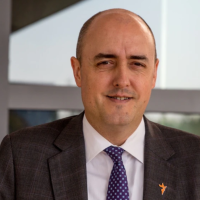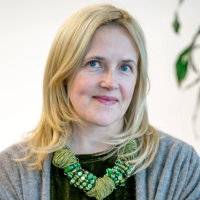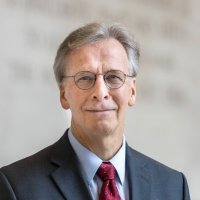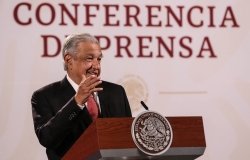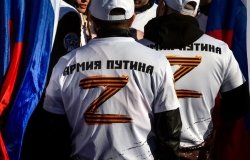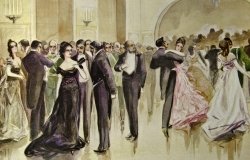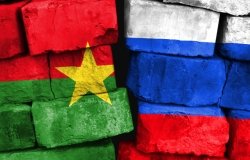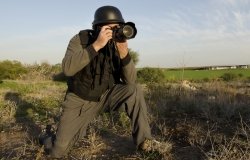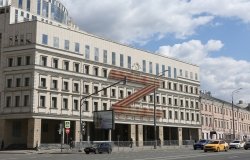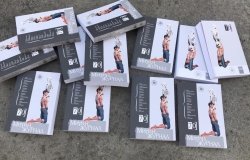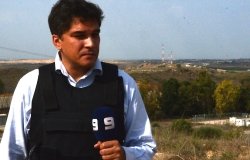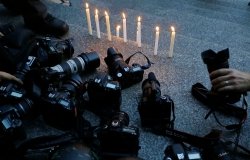A Storied Legacy and Continued Challenges: Reflections on RFE/RL and Commemorating A. Ross Johnson
Overview
For 70 years, Radio Free Europe/Radio Liberty has played a critical role in working to advance freedom of information and the press in Europe, Eurasia, and the Middle East. Now, as authoritarian governments ramp up efforts to undermine democracy, human rights, and media freedom, RFE/RL is again on the front lines. In a conversation with Jamie Fly, President and Chief Executive Officer of RFE/RL, and Daisy Sindelar, Vice President and Editor in Chief of RFE/RL, we discussed the history, impact, and current challenges faced by RFE/RL in today’s evolving media environment.
Selected Quotes
Jamie Fly
"Ross loved RFE/RL deeply, never could leave the business after he ended his formal employment, stayed engaged in the company for years afterwards and continued to contribute to our work right up until his passing in February… My interactions with Ross were fairly recent, I met him only two years ago when I first became president of RFE/RL and he came to visit my office in Washington. But in the brief time, I benefited immensely from his knowledge and expertise as he was essentially serving as our de facto in-house historian. History is essential to understanding the work of RFE/RL even today. As you’ll hear from Daisy, we are a multimedia news organization providing news and information in 23 countries in 27 languages. But we’re a new organization that’s very different from other news organizations. We’re a news organization with a purpose."
"Our history gives us strength and resolve to deal with the challenging situation that we face today when we look at many of our markets, which are facing significant challenges of democratic decline and attacks on independent media. Our history also shows us that the power of our journalism can change people’s lives, can attract an audience that stays with us for sometimes a generation, and in recent years, when we as a company have sought to educate our staff about our history or look for historical parallels that might inform our current work, the person we would turn to again and again, either over emails or over the phone, through visits to our headquarters in Prague or sometimes through visits to our bureaus was Ross."
Daisy Sindelar
"I’ve been with the company for twenty years, so I really have seen a certain development arch and what has really be remarkable to me is how rapidly the company has evolved and changed over what I would say is the past five to seven years and that’s really in terms of its astounding new capacity for visual programming and how many of our hundreds of frontline reporters have really used this to solidify our brand as a source of objective news and information in the countries where we work. So for a company that has the name radio in its title not once but twice, we really have made an astonishing leap forward in television and video reporting capacities and it really had its origins in the founding of Current Time television which was created in October 2014 in response to the Russian invasion of Crimea when we began to realize there were large pockets of Russian speakers outside of the Russian Federation who only had one source of news and information if they wanted to be consuming news in Russian and that was from state-run channels. So with the creation of Current Time, we were trying to depoliticize the Russian language by creating a media outlet that would be speaking to Russian speakers worldwide by providing them with objective news and information that they would decidedly not be getting from channels controlled by the Kremlin."
"We are striving to build what is really going to be one of the largest reporting capacities in a very underreported and very misreported part of the world and in the meantime, thanks to our development in these visual capacities, we’ve really been at the frontline real eyewitnesses to what has been an absolutely astonishing period of history in the countries where we work."
Speakers
Hosted By

Kennan Institute
The Kennan Institute is the premier US center for advanced research on Russia and Eurasia and the oldest and largest regional program at the Woodrow Wilson International Center for Scholars. The Kennan Institute is committed to improving American understanding of Russia, Ukraine, Central Asia, the Caucasus, and the surrounding region though research and exchange. Read more

History and Public Policy Program
The History and Public Policy Program makes public the primary source record of 20th and 21st century international history from repositories around the world, facilitates scholarship based on those records, and uses these materials to provide context for classroom, public, and policy debates on global affairs. Read more

Global Europe Program
The Global Europe Program is focused on Europe’s capabilities, and how it engages on critical global issues. We investigate European approaches to critical global issues. We examine Europe’s relations with Russia and Eurasia, China and the Indo-Pacific, the Middle East and Africa. Our initiatives include “Ukraine in Europe” – an examination of what it will take to make Ukraine’s European future a reality. But we also examine the role of NATO, the European Union and the OSCE, Europe’s energy security, transatlantic trade disputes, and challenges to democracy. The Global Europe Program’s staff, scholars-in-residence, and Global Fellows participate in seminars, policy study groups, and international conferences to provide analytical recommendations to policy makers and the media. Read more
Thank you for your interest in this event. Please send any feedback or questions to our Events staff.
